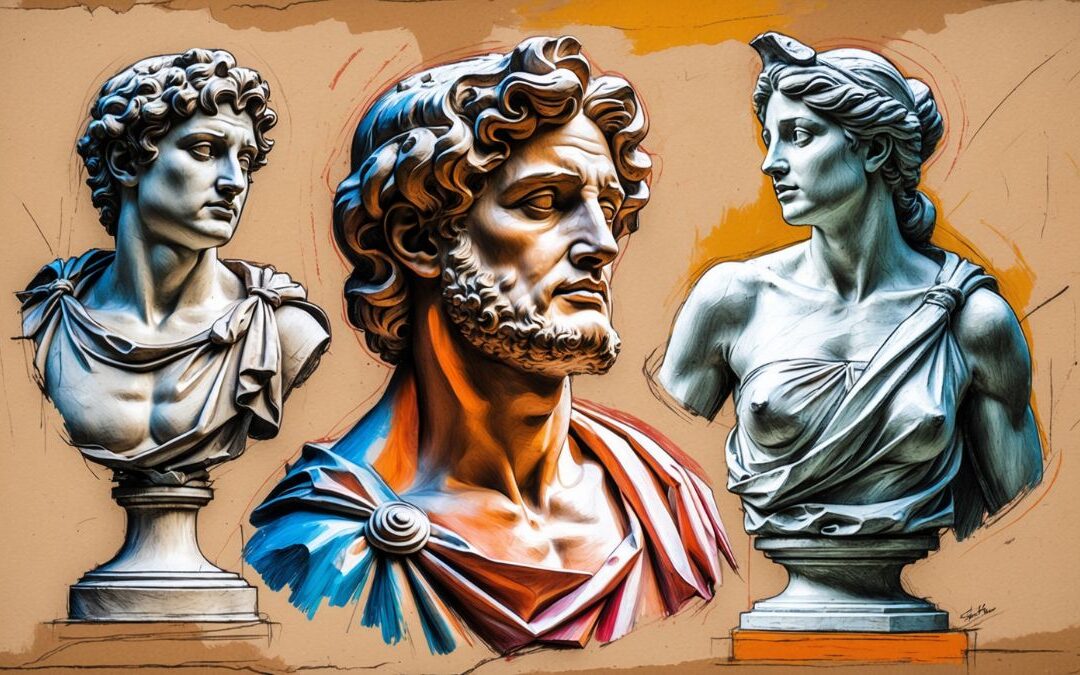The History of Self-Discovery: From Philosophers to Psychologists
The city of Athens, some two millennia ago, was a cauldron of bustling activity, profound intellect, and questions about human existence. At the heart of its many winding pathways stood a stoa where the wise often gathered to converse. Among them was Socrates, a man known for his relentless questions more than his answers.
“Know Thyself,” he would often proclaim, urging his fellow Athenians to introspect. To Socrates, understanding oneself was the first step towards wisdom. It wasn’t a mere self-centered introspection, but an exploration that would lead one to live an authentic, virtuous life.
Fast-forward several centuries, and the streets of Florence bore witness to the Renaissance, an era of art, science, and self-awareness. The Renaissance Man, like Leonardo da Vinci, wasn’t just a master of arts and sciences but also an individual deeply engrossed in understanding human potential and the nature of the self.
But the pursuit of self-discovery wasn’t just limited to Western terrains. On the banks of the River Ganges, sages in ancient India meditated deeply, diving into the depths of their consciousness, in their quest for “Atman,” the true self.
Each civilization, each epoch contributed a unique piece to the mosaic of self-understanding.
The 19th century then saw the dawn of a new era. The corridors of the University of Vienna echoed with a name that would reshape the understanding of the human mind—Sigmund Freud. He proposed that beneath the visible tip of our consciousness lay a vast submerged world of dreams, desires, and memories. It wasn’t just about knowing oneself anymore, but about unearthing the hidden chambers of our psyche.
His contemporary, Carl Jung, expanded this horizon even further, introducing the world to the concept of the collective unconscious. Jung believed that our journey of self-discovery was not just about the individual, but also about connecting with universal symbols and archetypes that have existed across time and cultures.
The 20th century continued this legacy. While philosophers pondered existentialism and the nature of the self in an absurd universe, psychologists like Abraham Maslow spoke of self-actualization, a pinnacle in the hierarchy of human needs where one achieves their fullest potential.
Maslow’s peer, Viktor Frankl, after surviving the horrors of concentration camps during WWII, emphasized the search for meaning. To Frankl, self-discovery was intertwined with purpose, and even in the direst circumstances, understanding one’s purpose could provide solace and direction.
As decades passed, the world saw a paradigm shift. The rise of technology and a fast-paced digital era brought with it a new set of challenges. While earlier epochs grappled with existential questions, the modern individual faced a crisis of distraction, mental health, and an ever-elusive sense of self.
Yet, amidst the cacophony of notifications and the digital sprawl, new voices emerged. Mindfulness and meditation, ancient tools once confined to the East, found global resonance. Modern psychologists, neuroscientists, and even tech leaders emphasized the importance of reconnecting with oneself. Apps aiding meditation, courses on self-awareness, and global retreats became the bridges to self-understanding.
Today, as we stand at the intersection of history, technology, and the human psyche, the quest for self-discovery remains as relevant as ever. From Socrates’s stoas to digital meditation chambers, from Freud’s couch to online therapy sessions, the journey of understanding the self has been the most enduring and universal of all human endeavors.
In the end, history isn’t just about monumental events or grand narratives. It’s about the individual, you and me, navigating through time, trying to answer that age-old question, “Who am I?” The tools and contexts might evolve, but the core pursuit remains unaltered. As we delve deep within, history whispers to us, reminding us that we are but a continuation of a story that began millennia ago—a story of self, discovery, and the eternal human spirit.
Take Action:
Given the rich tapestry of the history of self-discovery as painted above, here are some exercises and techniques inspired by the millennia of wisdom:
1. Socratic Questioning:
- Practice introspection by challenging your beliefs and assumptions. Ask yourself “Why do I believe this?” repeatedly until you reach the root of your belief.
2. Renaissance-Style Exploration:
- Cultivate diverse interests and hobbies. Dedicate some time each week to explore a new subject or skill. This multi-disciplinary approach enriches self-understanding.
3. Eastern Meditation:
- Adopt a simple daily meditation routine. Focus on your breath, a mantra, or guided meditations. This age-old practice from the East helps in deepening self-awareness.
4. Dream Analysis à la Freud:
- Keep a dream journal. Every morning, jot down whatever fragments of dreams you recall. Over time, try to find patterns and symbols that recur.
5. Jungian Archetype Exploration:
- Research and reflect on the universal symbols and archetypes Jung mentioned. Which ones resonate with you? They can provide insights into your subconscious.
6. Maslow’s Self-Actualization Activities:
- Identify your core strengths and passions. Dedicate time to hone them, pushing yourself towards self-actualization.
7. Franklian Logotherapy Techniques:
- Whenever faced with challenges, instead of asking “Why me?”, ask “What can I make of this situation?”. Search for meaning in adversities.
8. Digital Detox:
- Given the distractions of the modern world, set aside specific times or even entire days where you disconnect from digital devices, reconnecting with yourself and nature.
9. Mindfulness Practices:
- Integrate mindfulness into daily activities. Whether eating, walking, or even working, try to be entirely present, savoring each moment.
10. Engage in Philosophical Discussions:
- Join a book club or discussion group focused on philosophy or psychology. Engaging in profound conversations helps in refining personal beliefs and understanding.
11. Seek Professional Counseling:
- If you’re feeling lost or overwhelmed by your journey of self-discovery, consider seeking professional therapy. Therapists can provide tools and perspectives drawn from the rich history of psychological understanding.
12. Embrace Art:
- Engage in art creation or appreciation, be it painting, writing, or music. The Renaissance period highlighted how art can be a window to the soul.
13. Embark on a Solo Retreat:
- Dedicate a few days to solitude, ideally in nature. This retreat can help you reconnect with your inner self, much like the sages by the River Ganges.
14. Embrace Technology Wisely:
- Use apps and online platforms that support self-awareness and mental well-being. While technology presents distractions, it can also be harnessed for self-growth.
15. Study Autobiographies:
- Dive into the lives of great personalities throughout history. Understand their journeys of self-discovery, drawing parallels, and inspirations for your own path.
Remember, the journey of self-discovery is a personal one, and while history offers us a treasure trove of insights, each individual’s path is unique. Embrace the journey, learning from the past, but always forging your own way forward.











0 Comments